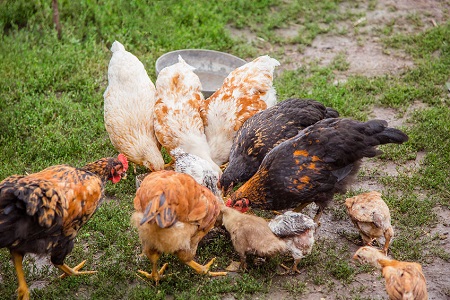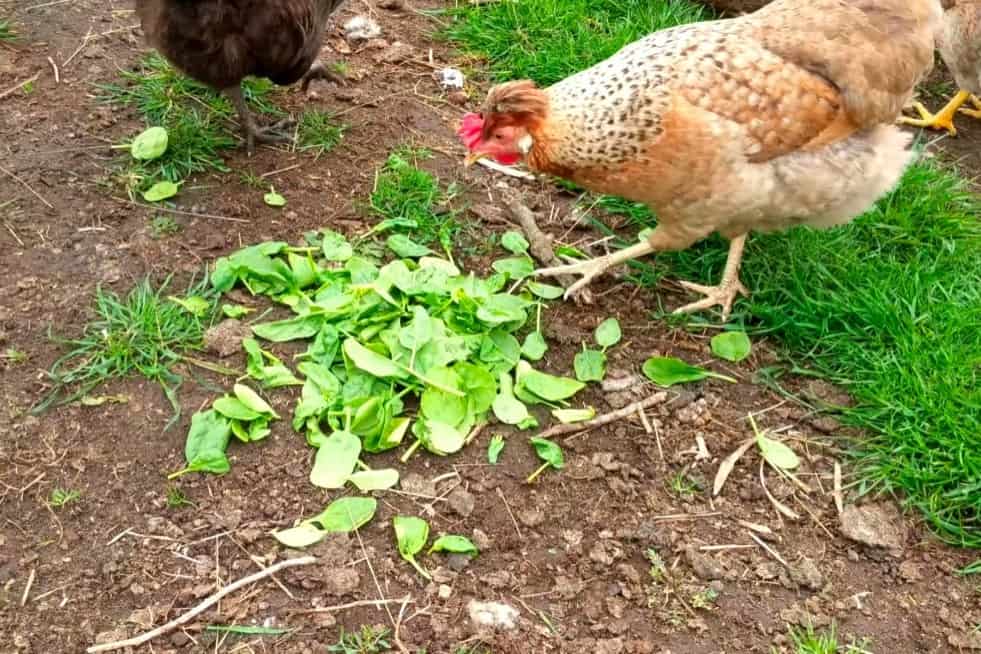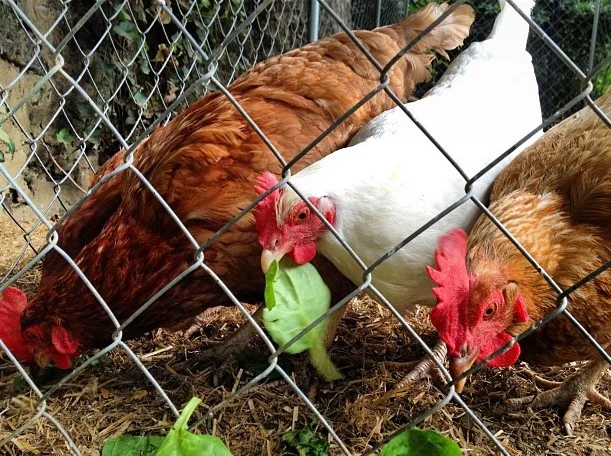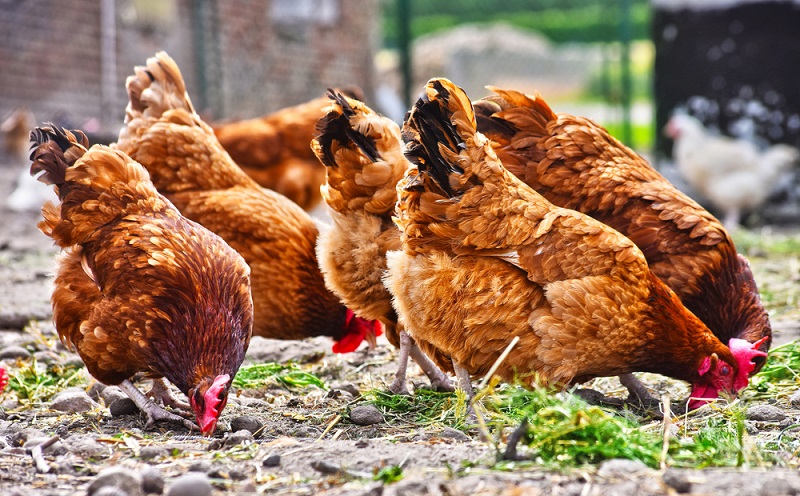
Can chicken eat spinach? Chickens, known for their varied diets, have an omnivorous nature, allowing them to consume a wide array of foods, including spinach. If you're a poultry enthusiast looking to boost your flock's nutrition, you've come to the right place.
If you're new to raising chickens and wondering what they need for a healthy life, selecting the right foods is crucial. Raw foods like fruits and vegetables, along with high-quality processed feeds, can help maintain your chickens' balanced diet and overall health. Adding spinach to their diet can be beneficial, and in this comprehensive guide, we will explore the world of feeding chickens spinach.
We will address common questions poultry keepers have, such as whether chickens can eat raw spinach and the benefits and potential risks associated with incorporating spinach into their diet. Let's unravel the leafy mystery and provide you with all the information you need about feeding spinach to your chickens.
Thinking about sharing onions with your chickens? Before you do, check out 'Can Chickens Eat Onions? Facts Nobody Told You' to uncover surprising insights that could impact your feathered friends' well-being.
Benefits of Feeding Spinach to Chickens; Nutritional Content of Spinach
When it comes to the question of whether chickens can consume spinach, the answer is a resounding YES, but it should be only in moderation. Spinach ranks among the top-tier leafy greens for enhancing your chickens' nutrition. It serves as a superb reservoir of essential nutrients, including beta carotene, calcium, iron, magnesium, phosphorus, potassium, and manganese.
Spinach is a nutritional powerhouse for both humans and chickens. It's packed with essential vitamins and minerals, making it an excellent addition to your flock's diet. High in calcium, iron, and vitamin A, spinach promotes healthy bone development, strong eggshells, and vibrant feather colors. Its folate content aids in cell division and tissue repair, essential for your chickens' overall well-being.
In our comprehensive guide on raising backyard chickens, we'll delve into the frequently asked question, Can Your Chickens Eat Grapes? Exploring Safety and Benefits, to provide you with essential insights and expert advice on the potential risks and advantages of incorporating this delectable fruit into your feathered friends' diet.

Is Spinach Poisonous to Chickens?
Now, you might be wondering, can spinach be harmful to chickens? Rest assured, spinach is not poisonous to chickens when fed in moderation. However, like any treat, excessive consumption can lead to problems. Providing spinach to your feathered friends can be a healthy addition to their diet, but it's important to strike the right balance for their well-being.
Can Birds Eat Too Much Spinach?
Chickens have a diverse diet that includes grains, insects, and kitchen scraps. While spinach is a nutritious addition, feeding them too much can be detrimental. The oxalic acid in spinach, when consumed in large amounts, can hinder calcium absorption and potentially lead to kidney issues. As with any treat, moderation is key.
Discover the answer to the common questions, Can Chickens Eat Bread? A Comprehensive Guide for Poultry Owners, as we delve into the potential benefits and drawbacks of feeding bread to your beloved flock, offering indispensable tips and considerations to ensure your chickens' health and well-being.

Can Broilers Eat Spinach?
If you're raising broiler chickens for meat, spinach can still be a valuable part of their diet. Its nutritional benefits apply to all chickens, promoting healthy growth and development. However, keep in mind that broilers have different dietary requirements during their rapid growth phase. Balance spinach with their regular feed to ensure they receive the necessary nutrients.
Is Raw Spinach Good for Bird
Raw spinach is indeed a safe choice for chickens, although some may favor cooked spinach due to the breakdown of oxalic acid, which aids digestion. When opting for raw spinach, consider finely chopping or shredding it to minimize choking risks for your feathered friends.
Furthermore, take the opportunity to experiment with different preparations and closely observe your chickens' preferences to determine the most enjoyable and beneficial way to serve spinach in their diet. This allows you to cater to their tastes while ensuring their nutritional needs are met.
Creating the perfect home for your feathered companions? Find out what should be inside a chicken coop to ensure their comfort, safety, and well-being. Check out our blog post for essential tips on setting up a cozy haven for your chickens!

Can Chickens Eat Spinach Seeds?
Chickens can enjoy spinach leaves, but what about the seeds? Spinach seeds are small and can be part of your chickens' diet. They contain beneficial nutrients and can provide entertainment as your chickens peck at them. Just ensure they have access to fresh water to wash down the seeds.
Can Chickens Eat Cooked Spinach?
Yes, chickens can eat cooked spinach. In fact, some chickens may prefer it over raw spinach. Cooking spinach can soften the leaves, making them easier to consume, and can also remove some of the oxalic acid. Simply steam or sauté the spinach without adding any salt or seasoning, and offer it as a treat.
Have you ever wondered, 'What is a female turkey called?' Uncover the answer and explore more about the intriguing world of turkeys in our latest blog post – you might be surprised by the names these remarkable birds go by!
Conclusion
Spinach can be a valuable addition to your chickens' diet, providing essential nutrients that contribute to their overall health and well-being. Remember that moderation is key to prevent potential issues associated with oxalic acid.
Whether you choose to offer raw or cooked spinach, your chickens will appreciate the nutritional boost and the tasty treat. So, go ahead, introduce some leafy greens to your flock and watch them thrive!
Share on Twitter Share on Facebook
Comments
There are currently no comments
New Comment